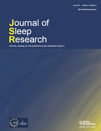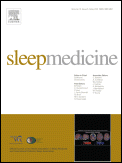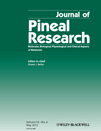
Journal of Turkish Sleep Medicine-Turk Uyku Tibbi Dergisi
Scope & Guideline
Empowering Global Collaboration in Sleep Medicine
Introduction
Aims and Scopes
- Clinical Sleep Disorders:
The journal extensively covers clinical aspects of various sleep disorders, including obstructive sleep apnea, insomnia, and hypersomnia, providing insights into diagnosis, management, and treatment outcomes. - Psychosocial Factors Related to Sleep:
Research on the psychological and social determinants of sleep quality, including stress, anxiety, and depression, is a core focus, emphasizing the interplay between mental health and sleep. - Polysomnography and Sleep Studies:
Methodologies involving polysomnography and other sleep study techniques are prevalent, highlighting the importance of objective measures in diagnosing and understanding sleep disorders. - Impact of Lifestyle and Environmental Factors:
The journal addresses the effects of lifestyle choices, such as diet, physical activity, and screen time, on sleep health, reflecting a holistic approach to sleep medicine. - Educational Interventions in Sleep Health:
There is a consistent focus on educational initiatives aimed at improving sleep hygiene, especially among healthcare professionals and students, showcasing the journal's commitment to public health.
Trending and Emerging
- Impact of COVID-19 on Sleep Quality:
A significant increase in studies examining the effects of the COVID-19 pandemic on sleep quality and patterns has emerged, addressing the mental health crisis and its implications for sleep. - Interrelationship Between Sleep and Nutrition:
There is a growing body of research exploring the links between sleep quality and nutritional habits, indicating an emerging interest in how dietary choices affect sleep health. - Technological Influence on Sleep:
Research into the effects of technology use, including screen time and gaming, on sleep patterns among various demographics, particularly children and adolescents, has gained traction. - Psychological Models of Sleep Disorders:
An increase in studies focusing on psychological models and interventions for sleep disorders reflects a trend towards understanding the cognitive and emotional aspects of sleep health. - Sleep and Chronic Illnesses:
The journal is witnessing a rise in studies linking sleep quality with chronic conditions such as diabetes and cardiovascular diseases, emphasizing the importance of sleep in overall health management.
Declining or Waning
- Traditional Pharmacological Treatments for Sleep Disorders:
Research focusing on traditional pharmacological interventions for sleep disorders has decreased, possibly due to a shift towards non-pharmacological approaches and lifestyle modifications. - Longitudinal Studies on Sleep Patterns:
Long-term longitudinal studies that track sleep patterns over extended periods have become less common, as researchers may favor cross-sectional studies that provide quicker insights into current trends. - Sleep Disorders in Older Populations:
While still relevant, studies specifically targeting sleep disorders in elderly populations appear to be declining, possibly overshadowed by a growing interest in pediatric and young adult sleep issues.
Similar Journals

Annals of the American Thoracic Society
Connecting researchers and clinicians for a healthier tomorrow.Annals of the American Thoracic Society is a premier journal dedicated to advancing the field of pulmonary and respiratory medicine. Published by the American Thoracic Society, this journal offers an invaluable platform for researchers and clinicians to disseminate cutting-edge research, clinical insights, and innovative methodologies. With an impressive impact factor and ranked in the top Q1 category of its field (2023) and within the top 20 of 155 according to Scopus rankings, it is positioned as a leading force in shaping clinical practice and research directions. The journal's convergence years from 2013 to 2024 indicate a commitment to providing timely and relevant content at the forefront of pulmonary health. While not an open-access journal, it ensures broad accessibility to its significant contributions in respiratory medicine, making it an essential resource for professionals, researchers, and students alike endeavoring to deepen their understanding and improve outcomes in thoracic health.

CHRONOBIOLOGY INTERNATIONAL
Advancing Understanding of Circadian ScienceCHRONOBIOLOGY INTERNATIONAL, a distinguished journal published by Taylor & Francis Inc, is at the forefront of research in the fascinating field of chronobiology, encompassing the physiological aspects of circadian rhythms and their impact on biological processes. Established in 1984, this journal serves as an essential resource for researchers, clinicians, and students, providing groundbreaking insights into how time-related factors influence health and disease. With an impressive ranking in the Q2 quartile for both Physiology and Medical Physiology categories and a commendable positioning within the Scopus metrics, it reflects the high-quality research it publishes. Although not categorized as an open-access journal, CHRONOBIOLOGY INTERNATIONAL provides a vital platform for disseminating innovative studies that bridge gaps in our understanding of physiological rhythms, making it indispensable for those dedicated to advancing knowledge in this dynamic field.

JOURNAL OF SLEEP RESEARCH
Bridging Research and Application in Sleep Studies.JOURNAL OF SLEEP RESEARCH, published by Wiley, stands as a leading platform for disseminating innovative research and insights in the fields of sleep science, behavioral neuroscience, and cognitive neuroscience. With a commendable Impact Factor that reflects its pivotal role in advancing our understanding of sleep and associated neurological processes, this journal ranks in the top quartile (Q1) across multiple categories in 2023—demonstrating its substantial influence and outreach. The journal's dedicated focus spans various aspects of sleep research, from basic science to clinical applications, making it an invaluable resource for researchers, clinicians, and students alike. Operating from the United Kingdom, the journal has been in continuous circulation since 1992 and will continue to contribute to the field until at least 2024. For those seeking to enrich their knowledge and stay abreast of the latest advancements in sleep research, the JOURNAL OF SLEEP RESEARCH is an essential read.

Sleep Health
Exploring the Depths of Sleep ResearchSleep Health is an esteemed journal published by Elsevier, dedicated to the rapidly evolving field of sleep research. With its ISSN 2352-7218 and E-ISSN 2352-7226, this journal serves as a pivotal platform for disseminating high-quality research on the interconnections between sleep and health, covering a diverse range of topics including behavioral neuroscience, neuropsychology, and the social sciences. Since its inception in 2015, Sleep Health has achieved recognition as a Q1 journal across several categories, ranking in the 93rd percentile among social sciences, ensuring its significant influence within the academic community. Despite being a non-open access journal, it attracts a broad audience due to its commitment to advancing knowledge and understanding of sleep's critical role in human health. Situated in the United States with operational facilities in Amsterdam, the journal invites contributions from researchers and practitioners alike, fostering a multidisciplinary approach to sleep studies and encouraging collaboration across diverse fields.

Sleep Medicine Clinics
Advancing the Science of Sleep for a Healthier TomorrowSleep Medicine Clinics, published by Elsevier Inc, serves as a premier platform dedicated to the advancement of research and clinical practices in the field of sleep medicine. With the ISSN 1556-407X and E-ISSN 1556-4088, this journal has been committed to exploring various facets of sleep disorders, their biological underpinnings, and implications for mental health and neurological conditions since its inception in 2006. Notably, it proudly holds a position within the esteemed Q1 and Q2 quartiles in multiple categories, including Medicine (Miscellaneous) and Clinical Psychology, and ranks highly in both Neuropsychology and Psychiatry & Mental Health fields, reflecting its significant impact and reputation in the academic community. With an emphasis on fostering interdisciplinary collaboration and evidence-based practice, Sleep Medicine Clinics is essential for researchers, clinicians, and students aiming to enhance their understanding of sleep health and its critical role in overall well-being. Though it does not offer open access, the journal remains an invaluable resource for those seeking to stay at the forefront of sleep medicine research and practice.

Sleep Science
Innovating Understanding of Sleep Disorders and TreatmentsSleep Science is a premier open-access journal dedicated to advancing the understanding of sleep and its profound impact on health and well-being. Published by THIEME MEDICAL PUBL INC, this journal aims to bridge the gap between research and practice in the fields of Behavioral Neuroscience and Medicine. Since its inception in 2008, Sleep Science has become a vital resource for researchers, healthcare professionals, and students seeking to explore the intricate mechanisms of sleep, its disorders, and treatment methodologies. With a commitment to disseminating high-quality research, the journal features a diverse range of articles covering the latest findings in sleep studies. Notably ranked in the Q3 category in 2023 across Behavioral Neuroscience, Medicine, and Neuroscience (miscellaneous) in Scopus, it provides a platform for scholarly discourse and innovation. The journal's open-access model ensures that critical insights are available to a wide audience, thereby promoting collaborative efforts to improve sleep health globally. For more detailed information, visit 333 SEVENTH AVE, NEW YORK, NY 10001.

SLEEP MEDICINE REVIEWS
Pioneering Comprehensive Reviews in Sleep Health.SLEEP MEDICINE REVIEWS, published by W B SAUNDERS CO LTD, is a leading journal in the field of sleep medicine, recognized for its comprehensive and critical assessments of current research and clinical practices. With an impressive impact factor that places it in the Q1 category across various disciplines including Neurology, Pulmonary and Respiratory Medicine, and Physiology, this journal has become essential reading for researchers, healthcare professionals, and students dedicated to understanding the complexities of sleep and its impact on health. The journal has significantly contributed to the academic landscape since its inception in 1997, and continues to advance knowledge up to 2024. Although it is not an Open Access publication, subscribers gain access to high-quality reviews that synthesize cutting-edge research findings, critical methodologies, and practical applications in sleep medicine. Its high ranking—2nd among 192 in Neuroscience and Neurology and 9th among 400 in Neurology (Clinical)—underscores its pivotal role in shaping future research and clinical guidelines.

SLEEP MEDICINE
Illuminating the Path to Restful NightsSLEEP MEDICINE, published by Elsevier, is a leading journal in the field of sleep research and clinical practice, dedicated to advancing the understanding of sleep disorders and their impact on health. With an impressive Q1 ranking in the Medicine (miscellaneous) category and a Scopus rank of #46 out of 636, this journal consistently demonstrates its significance within the academic community, showcasing research that spans the spectrum from basic science to clinical applications. The journal, which has been in publication since 2000, serves as a vital platform for clinicians, researchers, and students alike, offering insights into the latest findings in sleep medicine. Although it is not an open-access publication, SLEEP MEDICINE ensures comprehensive accessibility to high-quality scholarly content that addresses critical issues facing healthcare today, thereby contributing to improved patient care and outcomes.

INTERNATIONAL JOURNAL OF PEDIATRIC OTORHINOLARYNGOLOGY
Empowering pediatric practitioners with cutting-edge insights.INTERNATIONAL JOURNAL OF PEDIATRIC OTORHINOLARYNGOLOGY, published by Elsevier Ireland Ltd, stands as a pivotal resource in the fields of pediatric otorhinolaryngology, pediatrics, and related medical disciplines. With a historical publication record spanning from 1979 to 2024, this journal is dedicated to advancing research and clinical practice in the diagnosis and treatment of ear, nose, and throat disorders in children. As evidenced by its 2023 rankings, the journal maintains a commendable position within the Q2 category of its field, reflecting its impact and the quality of research it disseminates, ranking #43 out of 123 in Otorhinolaryngology and #131 out of 330 in Pediatrics. Researchers, clinicians, and students alike can benefit from a wealth of studies and reviews designed to inform and enhance pediatric care. Although the journal does not currently offer open access, it remains an indispensable tool for those seeking to stay at the forefront of pediatric health and otolaryngological innovations.

JOURNAL OF PINEAL RESEARCH
Transforming Understanding of Physiological ProcessesJOURNAL OF PINEAL RESEARCH, published by Wiley, is a leading peer-reviewed journal dedicated to advancing the field of endocrinology with a specific focus on the pineal gland and its significant roles in various physiological processes and disorders. Since its inception in 1984, the journal has established itself as a crucial platform for the dissemination of high-quality research, securing an impressive Q1 ranking in Endocrinology as of 2023, with Scopus rankings placing it among the top 5% of journals in the biochemistry, genetics, and molecular biology category. With an emphasis on original research articles, reviews, and letters in the areas of melatonin, circadian rhythms, and neuroendocrine regulation, the journal aims to foster interdisciplinary collaboration and knowledge-sharing among researchers, professionals, and students alike. Although not an open-access journal, its rigorous editorial process and wide-reaching impact factor ensure that published work reaches a global audience, making it an invaluable resource for those in the scientific community committed to the study of endocrinology and beyond.